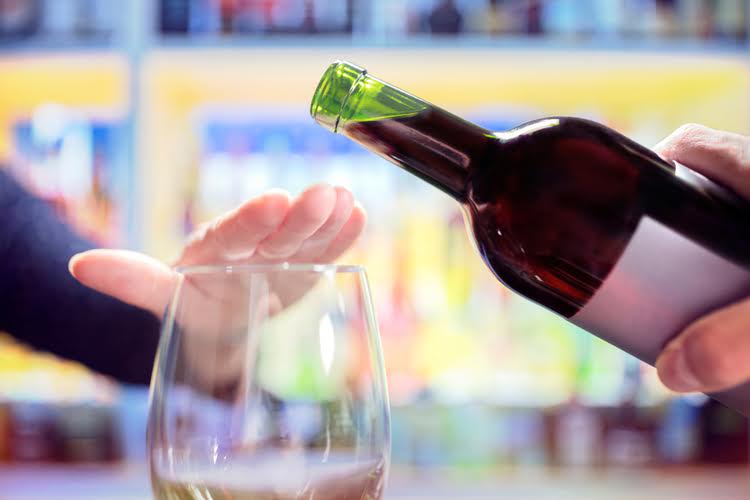Witnessing your loved one’s drinking and the deterioration of your relationship can trigger many distressing emotions, including shame, fear, anger, and self-blame. Your loved one’s addiction may even be so overwhelming that it seems easier to ignore it and pretend that nothing is wrong. But in the long run denying it will only bring more harm to you, your loved one with the problem, and the rest of your family. When relapse happens, it’s important not to blame your loved one or get frustrated and angry with them.
- When someone reaches a crisis point, sometimes that’s when they finally admit they have a problem and begin to reach out for help.
- When your loved one swears to you and to themselves that they will never touch another drop of alcohol, you might believe them.
- Your teen should understand that drinking alcohol comes with specific consequences.
- The severity of the disease, how often someone drinks, and the alcohol they consume varies from person to person.
- Skills that can help you in this process are what therapists use from Motivational Interviewing called “O.A.R.S.” which stands for open-ended questions, affirmations, reflections, and summaries.
- The help and support from partners, relatives, and friends are invaluable to a person with AUD.
Don’t blame yourself if the first intervention isn’t successful. The most successful treatment happens when a person wants to change. Tell your loved one that you’re worried they’re drinking too much, and let them know you want to be supportive.
After the healing, a better life
Contrary to myth, being able to “hold your liquor” means you’re probably more at risk — not less — for alcohol problems. Yet a family history of alcohol problems doesn’t mean that children will automatically grow up to have the same problems. Nor does the absence of family drinking problems necessarily protect children from developing these problems. Crystal Raypole has previously worked as a writer and editor for GoodTherapy.
To learn more about alcohol treatment options and search for quality care near you, please visit the NIAAA Alcohol Treatment Navigator. If you’re the partner of someone with AUD, you might feel isolated — or tempted to isolate out of embarrassment or shame. Experiencing domestic violence, emotional abuse, or other hurtful actions like infidelity can https://ecosoberhouse.com/ further push partners to withdraw from family and friends. People who’re dependent on alcohol may need to learn skills and coping mechanisms to help avoid alcohol once you leave a treatment center or return to familiar environments. Ideally, health professionals would be able to identify which AUD treatment is most effective for each person.
Helping a Loved One with Alcohol Use Disorder
A health care provider might ask the following questions to assess a person’s symptoms. Friends, roommates, or other family members who live with someone with AUD may also find themselves blaming the person or trying to control their drinking behaviors. Supporting a loved one with alcohol use disorder (AUD) through their addiction and even recovery can be challenging, yet social support is necessary for recovery.

John C. Umhau, MD, MPH, CPE is board-certified in addiction medicine and preventative medicine. For over 20 years Dr. Umhau was a senior clinical investigator at the National Institute on Alcohol Abuse and Alcoholism of the National Institutes of Health (NIH). While we are unable to respond to your feedback directly, we’ll use this information to improve our online help. However, this doesn’t mean you can’t implement and enforce healthy personal boundaries. Your doctor may refer you to one-on-one therapy or group counseling. “I have all the good things in life that everybody talks about,” he said.
Don’t Enable Their Behavior
If you want to take steps to get treatment for your AUD, make an appointment with your doctor. They’ll likely ask you a series of questions to determine the severity of your dependency. These questions can also help them determine the best treatment option for your needs. If you or someone you know is living with an AUD, the good news is that there are many different treatment options, and your doctor can help you choose the best one for you. They may recommend detoxification, medication, or relapse prevention training. Research suggests they often thrive in long-term recovery, reconnecting with family and enjoying economic success.
- But maybe you’re unsure about quitting completely and don’t want to hold yourself to that goal.
- Now, Hunter’s lawyers must work to devise defense strategies as their client faces down not only serious tax charges in California, but also felony gun charges in Delaware that carry a 25-year maximum sentence.
- It may be best to have a list of reputable treatment centers centers handy to make this person’s decision easier.
- This creates a warm holding environment where young adults have the chance to learn about risks and what can happen with continued abuse of substances.
- I slowly, painfully remove four bottles, careful not to clink them together.
The focus then becomes what you did (moved them) rather than what they did (drinking so much that they passed out outside). If family members try to “help” by covering up for their drinking and making excuses for them, they are playing Support for Those Who Struggling with Alcohol Addiction right into their loved one’s denial game. Dealing with the problem openly and honestly is the best approach. The key to dealing with alcohol dependency in the family is staying focused on the situation as it exists today.
There is life after addiction. Most people recover
If you have any of these symptoms, your drinking may already be a cause for concern. The more symptoms you have, the more urgent the need for change. A health professional can conduct a formal assessment of your symptoms to see if AUD is present. For an online assessment of your drinking pattern, go to RethinkingDrinking.niaaa.nih.gov. Your friend or loved one may also vow to cut back on their own.
In other words, their behavior, rather than your reaction to their behavior, becomes the focus. It is only when they experience their own pain that they will feel a need to change. What might seem like a reasonable expectation in some circumstances might be totally unreasonable when it comes to someone with an addiction. When your loved one swears to you and to themselves that they will never touch another drop of alcohol, you might believe them.
